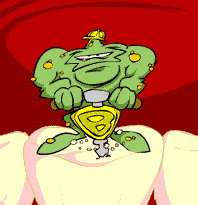 Below is an excerpt from an article found on MouthHealthy.org
Below is an excerpt from an article found on MouthHealthy.orgYour mouth, teeth, and gums are more than just tools for eating. They’re essential for chewing and swallowing-the first steps in the digestion process. Your mouth is your body’s initial point of contact with the nutrients you consume. So what you put in your mouth impacts not only your general health but also that of your teeth and gums. In fact, if your nutrition is poor, the first signs often show up in your mouth. Here are a few helpful things to know about how what you eat can impact your dental health.
Diet and Tooth Decay
The foods you eat and the beverages you drink can have a direct influence on the incidence and progression of tooth decay, depending upon:
- The form of the food-whether it’s liquid, solid, sticky or slow to dissolve makes a difference.
- How often you eat sugary foods and beverages and how often you eat or drink acidic foods and beverages.
- The nutritional makeup of the food.
- The combination of the foods you eat and the order in which you eat them.
- Medical conditions you may have, such as gastrointestinal reflux and eating disorders, which can increase risk of cavities and weaken teeth.
How Snacking Affects Your Dental Health
For dental health, it’s recommended that people limit eating and drinking between meals. Of course, sometimes eating between meals must happen. Unfortunately, most people choose foods like sweets and chips for snacks; foods that harm teeth by promoting tooth decay. If you do snack, make it a nutritious choice-such as cheese, yogurt, fruits, vegetables or nuts-for your overall health and the health of your teeth. Did you know that certain foods can put you at risk for cavities and other dental health problems? Here are some MouthHealthy tips.
To read the entire article visit MouthHealthy.org.
The remainder of the article details the following:
- Recommended Nutritional Guidelines
- Foods That Harm Your Dental Health
- Sugar and Your Dental Health
- How Sugar Substitutes Affect Your Teeth
- 4 Ways to Reduce Your Risk of Cavities
609-T East Main Street
Purcellville, VA 20132
Purcellville, VA 20132








